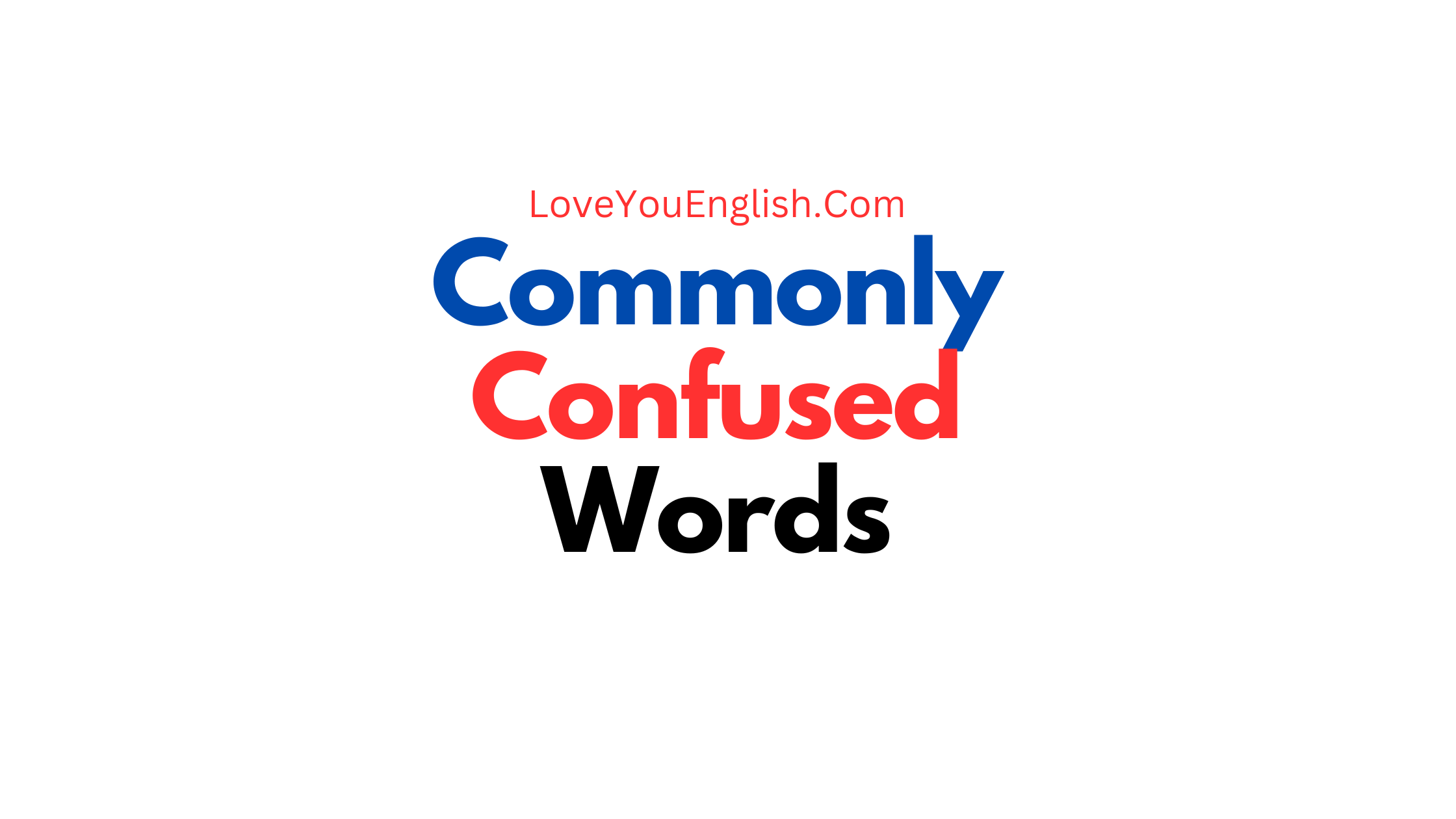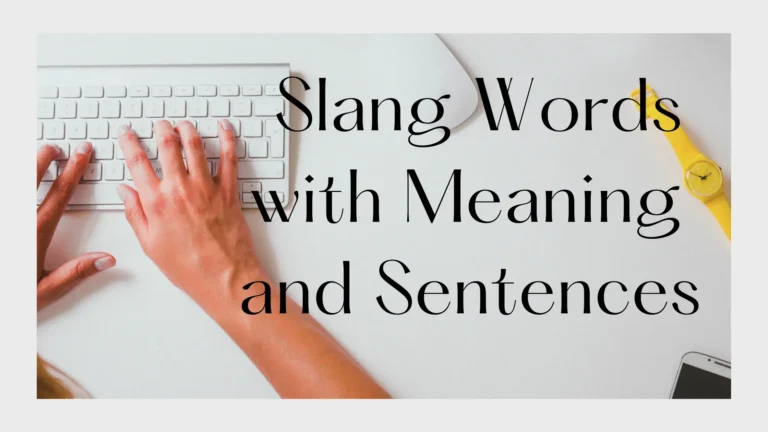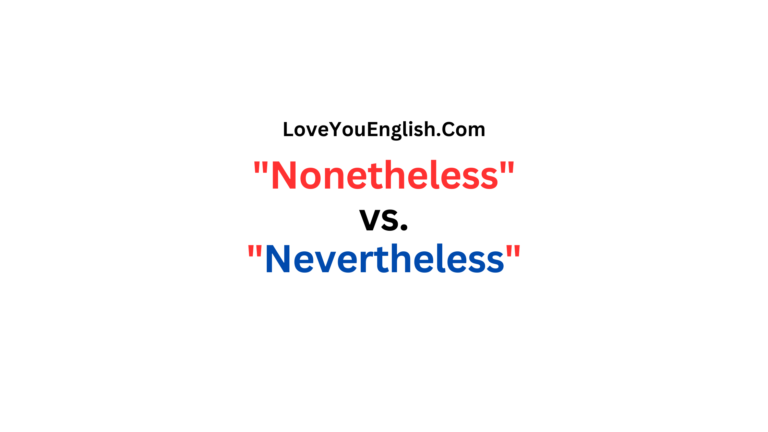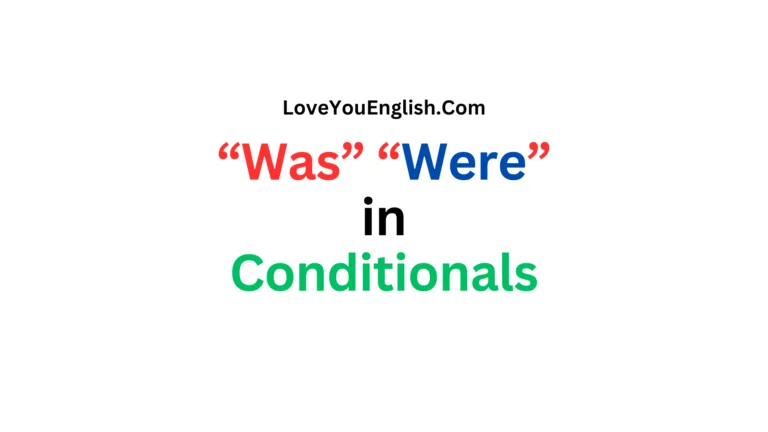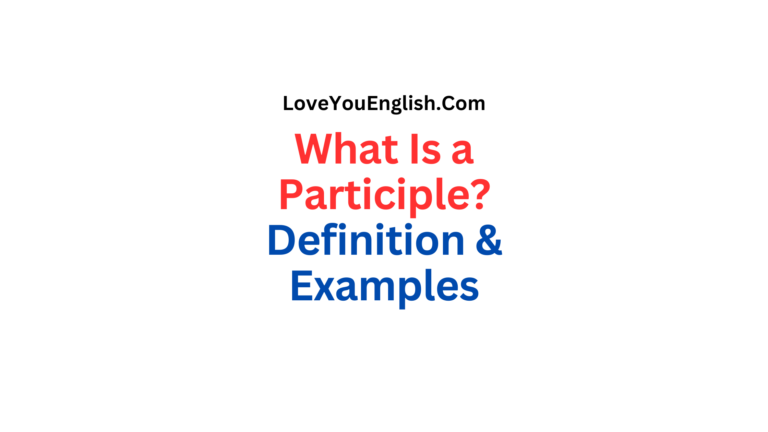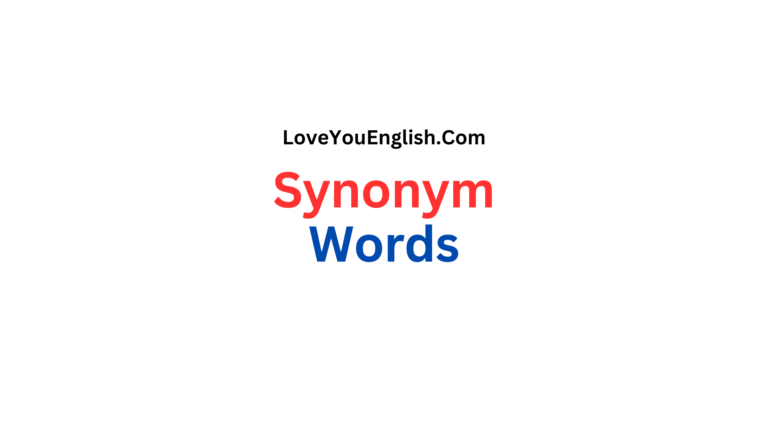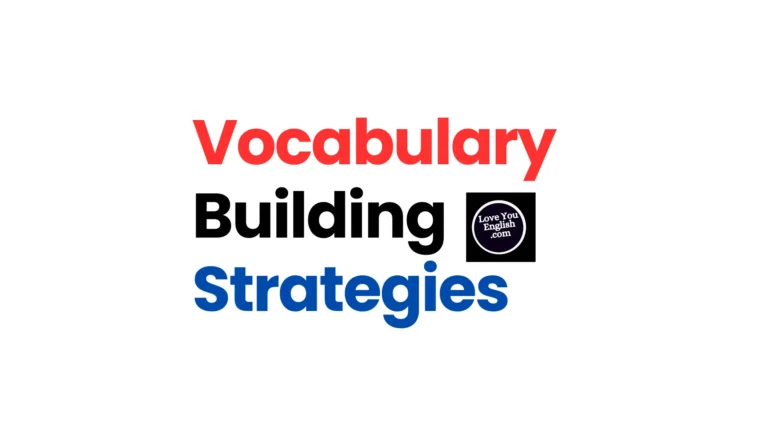Commonly Confused Words in English: A Simple Guide
Hello everyone,
Have you ever been writing an email or a text message and stopped to think, “Wait, is it ‘your’ or ‘you’re’?”
Or maybe you’ve wondered whether to use “affect” or “effect” in a sentence.
Don’t worry; you’re not alone!
The English language is full of words that sound alike or have similar meanings, making them easy to mix up.
This lesson will help you understand and correctly use some of the most commonly confused words in English.
1. Your vs. You’re
Your is a possessive pronoun. It shows that something belongs to you.
-
- Example: “Is this your book?”
- Meaning: The book belongs to you.
You’re is a contraction (short form) of “you are.”
-
- Example: “You’re a great friend!”
- Meaning: You are a great friend.
Remember: If you can replace the word with “you are” and the sentence still makes sense, use “you’re.” Otherwise, use “your.”
2. There vs. Their vs. They’re
There is used to talk about a place or to introduce a subject.
-
- Example: “The library is over there.”
- Meaning: The library is in that place.
Their is a possessive pronoun that shows something belongs to them.
-
- Example: “The children forgot their toys.”
- Meaning: The toys belong to the children.
They’re is a contraction of “they are.”
Tip: Replace “they’re” with “they are” to check if it’s the right choice. If not, ask yourself if you’re talking about a place (there) or something that belongs to someone (their).
3. To vs. Too vs. Two
To has many uses:
Too means “also” or “excessively.”
Two is the number after one and before three.
-
- Example: “I have two cats.”
Quick check: If you mean “also” or “very,” use “too.” If it’s a number, use “two.” In most other cases, use “to.”
4. Its vs. It’s
Its shows possession for the pronoun “it.”
-
- Example: “The dog wagged its tail.”
- Meaning: The tail belongs to the dog.
It’s is a contraction of “it is” or “it has.”
-
- Example: “It’s raining outside.” (it is)
- Example: “It’s been a long day.” (it has)
Remember: “Its” is like “his” or “hers” – it shows ownership. “It’s” always means “it is” or “it has.”
5. Affect vs. Effect
Affect is usually a verb meaning “to influence” or “to cause a change.”
-
- Example: “The weather affects my mood.”
- Meaning: The weather changes or influences my mood.
Effect is usually a noun meaning “a result.”
-
- Example: “The new law had a positive effect.”
- Meaning: The new law resulted in something good.
Tip: In most cases, “affect” is a verb (an action) and “effect” is a noun (a thing). Think “the action affects the result.”
6. Than vs. Then
Than is used for comparisons.
-
- Example: “She’s taller than her brother.”
- Meaning: Comparing her height to her brother’s.
Then is about time or what comes next.
-
- Time: “We ate dinner, then we watched TV.”
- Next step: “If you’re tired, then you should rest.”
Remember: Use “than” when comparing things. Use “then” when talking about time or the next step.
7. Accept vs. Except
Accept means to receive or agree to something.
Except means “but” or “other than.”
Think: “Accept” is about taking something, while “except” is about leaving something out.
8. Farther vs. Further
Farther is used for physical distance.
-
- Example: “My house is farther down the road.”
- Meaning: My house is a greater physical distance away.
Further is used for figurative distance or to mean “additional.”
-
- Figurative: “She took her studies further.”
- Additional: “For further information, please call…”
Easy way to remember: “Farther” has “far” in it, which makes you think of physical distance.
9. Stationary vs. Stationery
Stationary means not moving.
-
- Example: “The car was stationary at the light.”
- Meaning: The car was stopped, not moving.
Stationery refers to writing materials.
-
- Example: “I bought new stationery for school.”
- Meaning: I bought paper, envelopes, etc.
Tip: “Stationery” has “er” like in “letter” – both are about writing.
10. Lose vs. Loose
Lose means to misplace something or fail to win.
-
- Misplace: “Don’t lose your keys!”
- Fail to win: “Our team might lose the game.”
Loose means not tight or free.
-
- Not tight: “My old jeans are too loose now.”
- Free: “The horse got loose from its stable.”
Remember: “Lose” has one “o” like in “lost.” You lost an “o,” so it’s “lose.”
11. Who’s vs. Whose
Who’s is a contraction of “who is” or “who has.”
-
- Example: “Who’s coming to the party?” (who is)
- Example: “Who’s seen my phone?” (who has)
Whose shows possession, asking who owns something.
-
- Example: “Whose jacket is this?”
- Meaning: To whom does this jacket belong?
Think: If you can’t replace it with “who is” or “who has,” then it’s “whose.”
12. Lie vs. Lay
This one’s tricky because the forms change in different tenses!
Lie means to rest or recline. (No direct object)
Lay means to put or place something. (Needs a direct object)
Tip: If you’re putting something somewhere, use “lay.” If you’re just resting, use “lie.”
13. Complement vs. Compliment
Complement means to complete or go well with something.
-
- Example: “The wine complements the meal perfectly.”
- Meaning: The wine goes well with the meal.
Compliment means to praise or say something nice.
-
- Example: “She complimented my new haircut.”
- Meaning: She said nice things about my haircut.
Think: “Complement” completes something, while “compliment” is saying something pleasant.
14. Advice vs. Advise
Advice is a noun, meaning a suggestion or recommendation.
-
- Example: “Can you give me some advice?”
- Meaning: Can you provide me with suggestions?
Advise is a verb, meaning to suggest or recommend.
-
- Example: “I advise you to study more.”
- Meaning: I suggest that you study more.
Remember: “Advice” is the thing (noun), “advise” is the action (verb).
15. Principal vs. Principle
Principal has two main uses:
-
- The head of a school: “The principal gave a speech.”
- The main or most important: “The principal reason I’m here…”
Principle means a fundamental truth or rule.
-
- Example: “I have strong moral principles.”
- Meaning: I have strong fundamental beliefs.
Tip: The school principal is your “pal,” so that spelling has “pal” in it.
16. Elicit vs. Illicit
Elicit is a verb meaning to draw out or evoke.
Illicit is an adjective meaning illegal or not allowed.
-
- Example: “They were caught with illicit drugs.”
- Meaning: They had illegal drugs.
Think: “Elicit” starts with “E” for “evoke.” “Illicit” starts with “I” for “illegal.”
17. Assure vs. Ensure vs. Insure
Assure means to tell someone confidently, to make someone feel sure.
-
- Example: “I assure you, everything is fine.”
- Meaning: I’m telling you confidently that all is well.
Ensure means to make certain that something happens.
-
- Example: “Please ensure the door is locked.”
- Meaning: Make certain that the door gets locked.
Insure means to provide insurance.
-
- Example: “You should insure your car.”
- Meaning: You should get insurance for your car.
Quick guide: You assure a person, ensure a task is done, and insure valuable items.
18. Practice vs. Practise (or Practice)
This one depends on where you’re from!
In American English: Always use practice for both the noun and verb.
-
- Noun: “Piano practice is at 4 PM.”
- Verb: “I practice piano daily.”
-
- Practice is the noun: “She needs more violin practice.”
- Practise is the verb: “He practises violin every day.”
Note: In the U.S., always use “practice.” In the U.K., use “practise” for the action.
19. Discreet vs. Discrete
Discreet means cautious, careful not to draw attention.
-
- Example: “Please be discreet about the surprise party.”
- Meaning: Be careful not to reveal the party plan.
Discrete means separate or distinct.
-
- Example: “There are three discrete stages in the process.”
- Meaning: There are three separate, distinct stages.
Remember: “Discreet” has double “e” like in “keep” – you keep a secret. “Discrete” has the “te” separated – it’s about things being separate.
20. Everyday vs. Every Day
Everyday (one word) is an adjective meaning commonplace or ordinary.
-
- Example: “These are my everyday shoes.”
- Meaning: These are my ordinary, regularly used shoes.
Every day (two words) means “each day.”
-
- Example: “I walk my dog every day.”
- Meaning: I walk my dog each day without fail.
Tip: If you can put another word between “every” and “day” (like “single” – every single day), then it should be two words.
Remember, it’s normal to mix these up sometimes.
Even native English speakers make these mistakes!
The key is to learn from each mix-up.
Over time, using the right word will become second nature.
Here’s a quick tip: When you’re unsure, look up the word in a dictionary or do a quick online search.
Many English learners find that reading a lot in English also helps.
The more you see these words used correctly in books, articles, or even social media posts, the better you’ll understand them.
Don’t be afraid to make mistakes.
They’re a natural part of learning any language.
Keep practicing, and soon you’ll be using these tricky words with confidence.
Good luck with your English journey!
_________________________
Check out these awesome vocabulary books I recommend:
1500 VOCABULARY FLASH CARDS + ONLINE for GRE GMAT TOEFL SAT IELTS CAT
10 Minutes A Day Vocabulary, Ages 7-11 (Key Stage 2)
English Vocabulary In Use: Pre – Intermediate And Intermediate With CD

